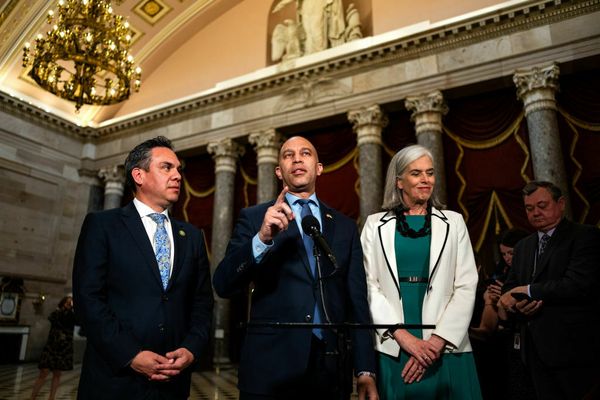
Kabul (AFP) - The death toll of a suicide bombing on a Kabul classroom has risen to 35, the UN said Saturday, as Shiite Hazara women who bore the brunt of the attack staged a defiant protest against the "genocide" of their minority community.
On Friday a suicide attacker blew himself up in a Kabul study hall as hundreds of pupils were taking tests in preparation for university entrance exams in the city's Dasht-e-Barchi area.
The western neighbourhood is a predominantly Shiite Muslim enclave and home to the minority Hazara community -- a historically oppressed group that has been targeted in some of Afghanistan's most brutal attacks in recent years.
"The latest casualty figures from the attack number at least 35 fatalities, with an additional 82 wounded," the United Nations Assistance Mission in Afghanistan (UNAMA) said in a statement.
More than 20 of those killed were girls and women, it said.
The UN mission's casualty figure is higher than the toll Kabul authorities have given.
An interior ministry official told AFP anonymously on Saturday that 25 people were killed and 33 wounded in the attack on the Kaaj Higher Educational Centre -- updating an earlier toll of 20 killed and 27 wounded.
Since returning to power last August, security has been a sensitive topic for the Taliban and the hardliners have often been keen to downplay attacks challenging their regime.
Meanwhile on Saturday dozens of Hazara women defied a Taliban ban on rallies to protest the latest bloodshed in their community.
Around 50 women chanted, "Stop Hazara genocide, it's not a crime to be a Shiite", as they marched past a hospital in Dasht-e-Barchi where several victims of the attack were being treated.
Dressed in black hijabs and headscarves, the protesters carried banners that read: "Stop killing Hazaras", an AFP correspondent reported.
Witnesses have told AFP that the suicide attacker detonated in the women's section of the gender-segregated study hall.
Wajiha, a survivor, saw her friends and male students scrabbling to escape from the hall after the attack.
"I saw boys climbing the compound wall and pulling girls along.I saw one boy who was himself injured but he kept pulling girls out," Wajiha told AFP on Saturday.
Protester Farzana Ahmadi said the attack was "against the Hazaras and Hazara girls".
"We demand a stop to this genocide.We staged the protest to demand our rights," she told AFP.
Regular target
Protesters later gathered in front of the hospital and chanted slogans as dozens of heavily armed Taliban, some carrying rocket-propelled-grenade launchers, kept watch.
"Taliban urged to safeguard rights of all Afghans & stop using weapons to prevent right of peaceful protest," the UN mission said on Twitter after the protest.
Since the hardline Taliban returned to power, women's protests have become risky, with numerous demonstrators detained and rallies broken up by Taliban forces firing shots in the air.
No group has claimed responsibility for Friday's attack.
But the jihadist Islamic State (IS) group regards Shiites as heretics and has previously claimed attacks in the area targeting girls, schools and mosques.
The Taliban have also been accused by rights groups of targeting the Hazaras during their 20-year insurgency against the former US-backed government.
Amnesty International said Friday's attack was "a shamefaced reminder of the inaptitude and utter failure of the Taliban, as de-facto authorities, to protect the people of Afghanistan".
Since returning to office the Taliban have pledged to protect minorities and clamp down on security threats.
"We promise to all our compatriots that we will do more to bring the perpetrators of yesterday's and similar attacks to justice," the foreign ministry said on Saturday after Friday's attack drew widespread international condemnation.
In May last year, before the Taliban's return to power, at least 85 people -- mainly girls -- were killed and about 300 were wounded when three bombs exploded near their school in Dasht-e-Barchi.
Again, no group claimed responsibility, but a year earlier IS claimed a suicide attack on an educational centre in the same area that killed 24.







